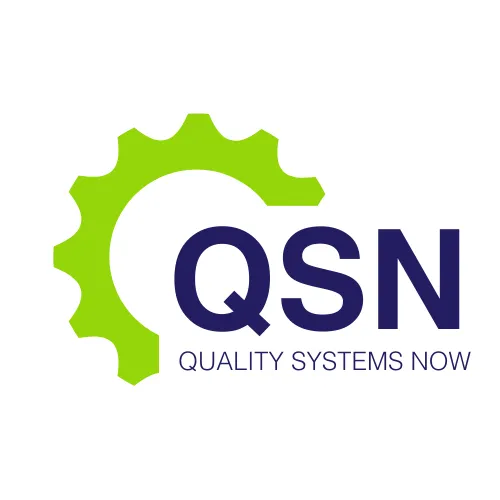NEWS

Mentoring of Key Personnel in GMP Regulatory Compliance
Good Manufacturing Practice (GMP) regulatory compliance forms the backbone of quality assurance in therapeutic goods manufacturing, biotechnology, and laboratory operations. Adherence to GMP ensures that products are consistently produced and controlled according to established quality standards, reducing risk to patients, regulatory bodies, and commercial stakeholders. While written procedures, standard operating procedures (SOPs), and quality management systems provide structural guidance, the human element remains critical. Mentoring key personnel in GMP compliance represents a strategic mechanism to embed knowledge, foster a culture of quality, and ensure operational excellence.
QSN Academy specialises in mentoring programs designed to equip personnel with the knowledge, skills, and confidence to implement and sustain GMP compliance. This article explores the scientific rationale for mentoring, methodologies employed, and the measurable impact on organisational performance.
The Importance of Mentoring in GMP Compliance
The scientific principles underpinning GMP emphasise reproducibility, traceability, and risk management. While procedural documentation supports these objectives, the interpretation and practical application of regulations rely on skilled personnel. Mentoring key personnel—such as quality managers, production supervisors, laboratory heads, and regulatory affairs specialists—ensures that theoretical knowledge is translated into operational competence.
Mentoring differs from traditional classroom training in its emphasis on experiential learning and contextual application. According to adult learning theory, professionals acquire and retain knowledge more effectively when instruction is coupled with real-world application, iterative feedback, and guided problem-solving. Within GMP frameworks, this translates to mentoring that combines regulatory theory, process observations, deviation analysis, and continuous improvement initiatives.
Core Objectives of GMP Mentoring Programs
Effective mentoring programs in GMP regulatory compliance aim to achieve several critical objectives:
Knowledge Transfer: Mentors impart deep understanding of GMP principles, regulatory expectations, and applicable legislation, including international standards such as ICH Q7, ISO 13485, and the Therapeutic Goods Regulations.
Skill Development: Personnel learn to perform risk assessments, conduct audits, interpret deviations, and manage corrective and preventive actions (CAPA) in a compliant manner.
Decision-Making Competence: Mentoring provides a framework for evaluating operational decisions through a compliance lens, ensuring risk-based, data-driven decision-making.
Leadership and Culture: Key personnel are trained to promote a culture of quality, guiding teams in adherence to SOPs, validation protocols, and documentation standards.
Continuous Improvement: Mentoring fosters proactive identification of compliance gaps, encourages implementation of best practices, and enhances regulatory readiness.
Through these objectives, mentoring reinforces both individual competence and systemic quality assurance, reducing the likelihood of non-conformances and regulatory observations.
Methodologies for Effective Mentoring
QSN Academy employs a structured, scientific approach to mentoring, incorporating both theoretical and practical elements. Key methodologies include:
Shadowing and Observational Learning: Mentors guide mentees through daily operations, providing real-time feedback on compliance practices, documentation accuracy, and adherence to SOPs. Observational learning ensures that theoretical knowledge is applied consistently in operational contexts.
Case Study Analysis: Historical deviations, regulatory inspections, and CAPA reports are analysed collaboratively. This approach develops analytical reasoning and exposes mentees to practical challenges and solutions within GMP frameworks.
Interactive Workshops: Scenario-based exercises simulate complex regulatory situations, requiring mentees to make decisions under guidance. Workshops enhance critical thinking, risk assessment, and collaborative problem-solving.
Audit Participation: Mentors involve key personnel in internal and external audits, providing insight into inspection expectations, evidence review, and documentation standards. Active participation reinforces procedural understanding and audit readiness.
One-on-One Coaching: Individual mentoring sessions address specific competency gaps, career development goals, and technical challenges. This personalised approach ensures that mentees achieve measurable proficiency in GMP principles.
These methodologies are grounded in educational science, aligning learning with adult cognitive processes and practical operational demands.
Measurable Benefits of Mentoring Key Personnel
Scientific evaluation of mentoring outcomes demonstrates tangible improvements in both operational and regulatory performance. Benefits observed in GMP environments include:
Reduction in Deviations: Mentees develop competence in executing processes according to SOPs, resulting in fewer operational deviations and non-conformances.
Enhanced Documentation Quality: Mentored personnel produce accurate, complete, and audit-ready documentation, which is critical for regulatory inspections and submissions.
Improved Regulatory Readiness: Organisations with mentored key personnel exhibit higher inspection pass rates and more efficient responses to regulatory queries.
Risk Mitigation: Mentoring enables proactive identification and mitigation of potential compliance risks, reducing the likelihood of product recalls or regulatory sanctions.
Organisational Knowledge Retention: Mentoring ensures that expertise is transferred across personnel, reducing reliance on individual knowledge holders and enhancing resilience to staff turnover.
From a scientific perspective, these outcomes reflect improved adherence to controlled variables, increased process reliability, and enhanced reproducibility of operations—core tenets of GMP compliance.
Integration into Organisational Strategy
Mentoring of key personnel should be integrated into broader organisational strategies for quality management. This includes alignment with risk management frameworks, SOP updates, internal audit schedules, and continuous improvement initiatives. By embedding mentoring into the operational structure, organisations create a sustainable culture of compliance, where knowledge transfer, regulatory readiness, and quality assurance are ongoing rather than episodic.
QSN Academy’s mentoring programs are designed to support this integration, ensuring that key personnel can both apply regulatory principles effectively and guide their teams to maintain consistent standards.
Conclusion
Mentoring key personnel in GMP regulatory compliance is a scientifically supported strategy to enhance operational competence, regulatory readiness, and organisational resilience. Through structured guidance, practical exposure, and iterative feedback, mentoring ensures that personnel can interpret and apply complex regulations, manage risk, and promote a culture of quality.
For therapeutic goods manufacturers, testing laboratories, and biotechnology companies, investing in mentoring is not merely an educational activity—it is a strategic initiative that safeguards product quality, mitigates regulatory risk, and supports commercial success. QSN Academy provides tailored mentoring programs that equip key personnel with the skills and confidence required to achieve sustained GMP compliance and operational excellence.
